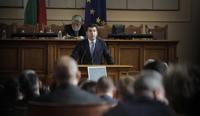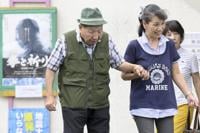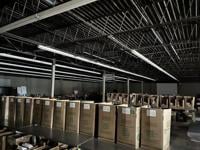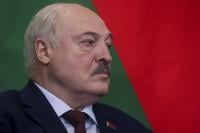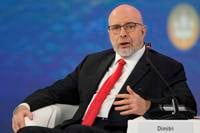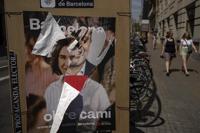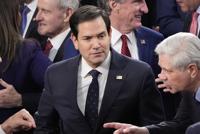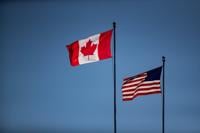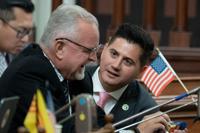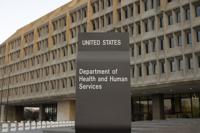SOFIA, Bulgaria (AP) — Bulgaria’s fragmented parliament failed to elect a new speaker Wednesday, heralding a continuation of the political gridlock that has gripped the country for two years.
Lawmakers convened for the first time since Bulgaria's Oct 2. election, the country’s fourth in less than two years. Choosing the national legislature's new speaker was the only item on the day's agenda.
However, neither of the candidates put forth by the two largest political groupings - the center-right GERB-UDF coalition and the reformist We Continue the Change party – mustered enough support during rounds of voting to become the new speaker.
Bulgarian media said it was the first time lawmakers failed to elect a speaker during a new parliament’s first sitting. Parliament plans to reconvene Thursday for another attempt.
GERB, which is led by former Prime Minister Boyko Borrisov, was the top vote-getter in this month's election, trailed by Kiril Petkov’s We Continue the Change. Neither party appears likely to produce a stable governing coalition with other parties, raising the prospect of yet another election.
Borissov led three governments between 2009 and early 2021. His reputation eroded amid allegations of corruption, links to oligarchs and suppression of media freedom that sparked protests.
A fragile coalition led by Petkov lost a no-confidence vote in June. He alleged Moscow had used “hybrid war” tactics to bring down his government after it refused to pay gas bills in rubles and ordered an expulsion of Russian diplomats from Bulgaria.
Many Bulgarians share pro-Russia sentiments, which provides fertile soil for aggressive Kremlin propaganda in the Balkan country.
The pro-Russia party Vazrazhdane captured 10.2% of the Oct. 2 vote, up from 4.9% in the previous election.


